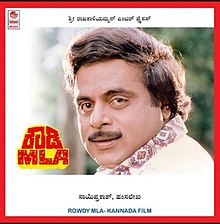
The case has its roots in the sweeping changes made after the abrogation of Article 370, which saw Jammu and Kashmir’s transition from a state to a Union Territory. As part of this reorganization, the LG has been vested with the power to nominate five members to the Legislative Assembly, raising questions about its alignment with democratic principles. The Reorganisation Act specifically outlines provisions for the inclusion of representatives for displaced communities, such as those from Pakistan-occupied Kashmir (PoK) and Kashmiri Pandits, in a bid to ensure their voices are heard.
Petitioners, led by Ravinder Kumar Sharma, have vehemently opposed this move, claiming that the LG’s nominations infringe upon the sanctity of electoral processes. The nomination, they argue, diminishes the power of elected representatives and gives undue authority to an unelected official. This is not the first time such a challenge has arisen; it has sparked a broader debate over the balance of power between elected representatives and central appointees in J&K’s unique political framework.
The J&K High Court, while hearing the case, refused to stay the nominations, ruling that the LG’s action was within the framework of the law. The petitioners contended that the J&K Reorganisation Act's sections 15, 15A, and 15B—under which the LG nominates these members—exceeded constitutional limits by altering the Assembly’s composition without a legislative amendment. However, the court emphasized that these nominations are not an arbitrary use of power but rather part of the legislative design created to accommodate specific constituencies in the region’s complex sociopolitical fabric.
This court decision comes after a similar plea reached the Supreme Court of India earlier. The apex court had also declined to entertain a petition challenging the LG’s nominations, directing the petitioner to first approach the J&K High Court. Senior Advocate Abhishek Manu Singhvi, representing the petitioner, argued that the LG’s power to nominate members threatened to undermine the results of democratic elections by granting non-elected individuals legislative roles. Despite this, the Supreme Court opted not to intervene at this stage, suggesting that the issue warranted detailed consideration at the High Court level.
The Reorganisation Act’s provisions for nominated MLAs aim to represent marginalized groups, particularly the Kashmiri Pandit community and those displaced from PoK. These groups, often excluded from direct electoral politics due to their displacement, are seen as critical stakeholders in J&K’s political and social future. Supporters of the nomination process argue that it provides a necessary mechanism for their inclusion, ensuring that they have formal representation in the legislative process despite their physical dislocation.
Opponents, however, maintain that this system disrupts the democratic process. By allowing the LG, an unelected official, to appoint legislators, they claim the central government is undermining the authority of elected representatives and potentially skewing the balance of power in the assembly. The increase in assembly seats—from 114 to 119—without an amendment to the law has been another point of contention, as critics believe it alters the political equilibrium in a manner that disproportionately favors certain groups.
The decision by the J&K High Court not to stay the nominations has been welcomed by proponents of the Reorganisation Act, who view the nominations as a legitimate step towards addressing the needs of historically marginalized populations. For those who have suffered displacement and the loss of their homes, this formal legislative representation is a small but significant victory.
The political implications of this decision, however, remain far-reaching. With the assembly’s composition potentially swayed by these nominations, the balance of power in J&K’s legislative processes could shift. As the region continues to navigate its post-Article 370 reality, the interplay between elected representatives and central appointees will remain a key factor in shaping its political destiny.
